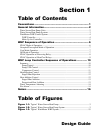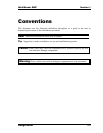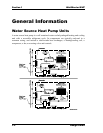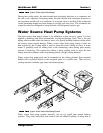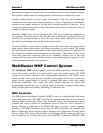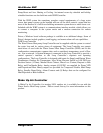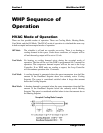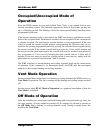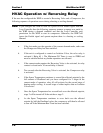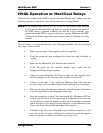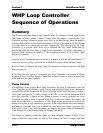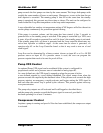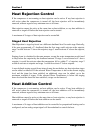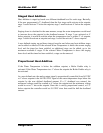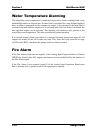
WattMaster WHP Section 1
Design Guide 1-7
Occupied/Unoccupied Mode of
Operation
Since the WHP contains its own built in Real Time Clock, it can operate from its own
internal scheduling system. This schedule supports two Start & Stop events per day and
up to 14 Holiday periods. The Holidays all use the same special Holiday Start/Stop times
programmed by the user.
If the current operating mode is unoccupied, the WHP can accept a push-button override
back to the occupied mode. Push-button overrides are not recognized if the current mode
is already occupied. The push-button override duration is user programmed. If the user
wants to extend the current override without reprogramming the Duration, they can re-
initialize the existing programmed period by pressing the override button anytime during
the current override. If the current override had been active for 1 hour and 45 minutes and
the user presses the push-button again, the override will reset for another 2 hour period (if
they programmed a 2 hour period), bringing the total override time to 3 hours and 45
minutes. If the user wants to cancel an override before it can time-out, simply hold the
push-button for a period of time between 3 and 10 seconds.
The WHP calculates its current heating and cooling setpoints based on the current mode
of operation. If the command is for unoccupied mode, the WHP adds the unoccupied
setbacks to the occupied heating and cooling setpoints.
Vent Mode Operation
During occupied hours when there is no heating or cooling demand, the WHP reverts to a
Vent Mode of operation. The fan is running and the heating and cooling outputs are held
off.
See the section titled HVAC Mode of Operation for a graphical description of how the
Vent Mode is calculated.
Off Mode of Operation
After the schedule goes unoccupied and both heating and cooling demands go away, the
fan stops running, all relay outputs are turned off. No outputs are allowed to activate in
the Off Mode until a heating or cooling demand occurs. During occupied hours this
would be the Vent Mode.



